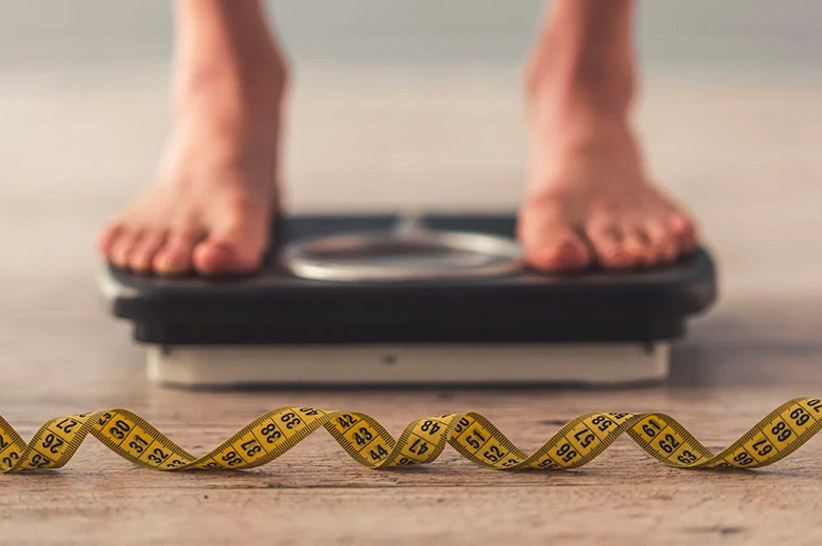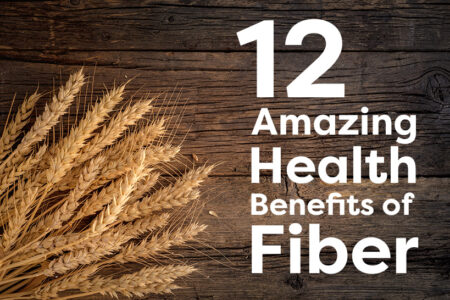Millions of people in the United States are suffering from obesity, and recent reports state that the obesity epidemic continues to worsen 17. Being overweight or obese can increase the risk of many diseases and health conditions such as cardiovascular disease. We’re going to discuss the importance of losing weight, setting weight loss goals, and give you 11 science-backed weight loss tips.
Why Should I Lose Weight?
People who are overweight or obese have higher chances of developing certain diseases and health conditions than those who are not. Being overweight can also harm your emotional and social health.
Osteoarthritis
Osteoarthritis is a degenerative joint disease that occurs when the cartilage that supports and joins the bones together breaks down. It can cause incredible pain, stiffness and make it uncomfortable to walk or be active. Osteoarthritis is common in older people and overweight or obese people.
If you’re overweight and have knee joint pain, you know exactly what we’re talking about. Losing weight can help recover from joint pain and reduce the chances of developing osteoarthritis.
Sleep apnea
Sleep apnea is a serious disorder in which a person’s breathing repeatedly stops and starts during sleep. Losing weight can help treat this potentially severe condition 15.
Reduced cardiovascular risk
One of the significant benefits of weight loss is that it can significantly reduce your chances of developing cardiovascular disease.
Better sleep
Overweight and obese people often have trouble getting a good night’s sleep due to conditions such as sleep apnea. If you’re one of them, losing weight can help you sleep better.
Immune Boost
Scientists have found that even a moderate amount of weight loss can have a significant positive impact on your immune system, especially in obese people with type 2 diabetes 16.
Improved self-confidence
Imagine fitting into the clothes you used to wear before gaining weight. Or imagine wearing clothes you like for the first time after losing weight. Weight loss can give a huge self-confidence boost and make you feel happy about your body image.

When Should I Lose Weight?
- When your doctor recommends losing weight. You can check this at home. A BMI greater than 25 should be addressed.
- Perhaps you might want to lose weight after pregnancy or after being a mom for several years.
- When you feel depressed about your appearance and badly want to make a change.
- If and when your weight is harming the overall quality of your life, for instance, when it messes with your libido.
- If you have health conditions that you know will improve if you lose weight.
Setting Your Weight Loss Goals
Set SMART goals
Setting smart goals is vital when it comes to losing weight.
Specific
Be specific about your reasons for wanting to lose weight and how it can help you.
Measurable
Expect a measurable outcome but don’t weigh yourself every day. Once a week or once every two weeks would be better.
Attainable
Remember that you are the only person in control of your weight loss.
Realistic
Before and after pictures of other people can sometimes make you feel demotivated when you do not see quick results like they are. So it’s important to set realistic goals and not compare yourself with other people. Remember, slow and steady wins the race.
Time-bounded
Give yourself a specific and realistic time frame to see results. The time you set depends on your current weight. If you’re 260+ lbs now, it would not be a wise move to give yourself just two months to lose weight.
Set short-term goals
Set some short-term goals about your weight loss such as losing a few pounds every month until you reach your goal weight.
Set long-term goals
Set long-term goals about how you’ll reach your weight goal and what you’ll do to maintain your weight. You don’t want to work hard for a year to lose weight only to gain it back after a couple of years.
Think about your overall lifestyle choices in the long term and what you can do to make them work for your weight loss and maintenance. Do you have a way to exercise at home or do you prefer going to the gym? Do you have enough time to get regular exercise?
Research about diet types and what approach can help you lose and maintain a lower weight in the long run.
11 Science-Based Weight Loss Tips
1. Eat eggs for breakfast
Eggs are one of the most versatile and nutritious foods you can ever eat yet many people still believe that eggs will make them put on weight and increase their cholesterol. Eating a high carb diet with eggs can promote weight gain, however, eating a low carb healthy diet with eggs does the opposite.
Photo by Shutterstock.com
A 2010 study found that consuming eggs for breakfast suppressed ghrelin response 1. Ghrelin is known as the hunger hormone because it’s produced when your stomach is empty. It increases hunger by acting on the hypothalamic brain cells and increases gastric acid production for food digestion. Your appetite will be reduced when the ghrelin response is low.
In a 2008 study, obese participants with 25> BMI were assigned to egg, egg diet, bagel, or bagel diet groups combined with a reduced calorie diet (1000 kcal) for five days per week 2. After eight weeks, the participants in the egg group showed 61% greater reduction in BMI, 65% more weight loss, 34% more reduction in waist, and 16% more fat loss than their bagel counterparts.
The study concluded that egg breakfast combined with a low-calorie diet can enhance weight loss, but does not do the same with a free-living diet. This supports our beginning statement that eating eggs with a high carb diet can cause weight gain.
2. Do intermittent fasting
Although fasting has been practiced for thousands of years, mainly due to religious and spiritual reasons, it has only been rising in popularity over the past few decades. The last decade has seen a tremendous growth of intermittent fasting, especially by those who practice the keto diet.
Intermittent fasting has many proven health benefits, and one of them is weight loss. In a 2018 systematic review, they researched six intermittent fasting studies which included alternate day fasting, fasting for two days, and up to four days per week 3. The study concluded that intermittent fasting might be beneficial for the weight loss treatment of overweight and obese people.
In another 2018 study, 51 obese men were randomized to either continuous or intermittent fasting diet for 16 weeks 4. The results revealed that participants in the intermittent fasting group had great fat and weight loss.
3. Go low carb
If you’ve been following the latest health trends, it may not come as a surprise that low carb diets can help with weight loss. For instance, a 2018 study compared the effectiveness of different levels of carbohydrate diet for weight loss maintenance.
In this study, 164 adults with 25> BMI were assigned to a high carb, moderate carb, or a low carb diet for 20 weeks 5. This experiment was carried out after they had a 12% weight loss on a run-in diet.
Results revealed that participants in the low carb diet group had increased energy expenditure during weight loss maintenance. This means they burned more calories than the other carb groups. Their ghrelin level was also significantly reduced, and as stated in tip 1, ghrelin is a hunger hormone that stimulates hunger.
4. Eat healthy snacks
Sugar cravings are one of the biggest culprits of weight gain. Five days into your healthy diet eating plan and you see a big box of chocolates lying in your dining table. Naturally, you may find it hard to say no to chocolates and give into it. There goes your weight loss plan, for the gazillionth time.

What if we tell you that you can combat cravings with delicious, healthy snacks without adding on pounds? Keep some low carb healthy snacks such as almond nuts, hard cheeses, berries, and boiled eggs in stock to eat whenever your cravings kick in.
As stated earlier, eggs are super healthy and excellent for weight loss. Just boil some and keep them in your refrigerator to snack on with pepper and salt.
For instance, a 2003 study found that overweight and obese participants who ate 84g/day of almonds with a low carb diet had a sustained and significant weight loss 6. Keeping a small bowl of almonds by your bed can help with late night cravings.
And your healthy snacks don’t always have to be boiled eggs, cheese, or almonds. A simple research online for low carb desserts and snacks will give you endless ideas.
5. Incorporate MCT oil
MCT oil is a supplement that contains medium chain triglycerides derived from coconut oil. Pure MCT oil only contains caprylic acid, capric acid, or a combination of both and they have significant health benefits for your body. The liver rapidly absorbs medium chain triglycerides without the help of bile.
It has been found to have appetite suppressant and weight loss properties. For instance, in a 2008 study, 49 overweight men and women were assigned to 18-24 mg of MCT oil or olive oil per day for 16 weeks 7.
This was combined with their weight loss program, and the results revealed that participants in the MCT oil group had significant weight loss than the olive oil group. They also noted that MCT oil consumption didn’t cause any adverse effects.
6. Drink green tea
Green tea is another popular weight loss remedy with proven records. It has been found to have fat burning and appetite suppressing properties. In a 2013 study, 63 patients with type 2 diabetes were assigned to have 4 cups of green tea per day, 2 cups of green tea per day, or a control group for two months 8.
Results revealed that participants in the 4 cups of green tea per day group had a significant weight loss, reduced BMI, waist circumference, and blood pressure than the other two groups.
7. Take whey protein
You may have heard about the benefits of whey protein for muscle building, but did you know it can also help you lose weight?
In a 2017 study, 34 women who gained some weight after gastric bypass surgery were assigned to a hypocaloric diet with or without whey protein 9. The study was carried out for 16 weeks. Results revealed that whey protein promoted weight reduction and fat loss.

In another 2017 study, 56 participants with type 2 diabetes were assigned to one of 3 isocaloric diets with the same lunch and dinner but different breakfast 10. One group had 42 grams of protein out of which 28 grams were from whey protein and the second group also had 42 grams of protein. The third group had a high carb breakfast with 17 grams of protein.
Results revealed that participants in the whey protein group lost more weight, and the study also concluded that whey protein breakfast might be an important adjuvant in type 2 diabetes management.
8. Resistance training
Resistance training can be beneficial for both men and women who are trying to lose weight. It doesn’t just help with weight loss, but also maintains shape and builds muscle, so you don’t have to worry about flabby arms or legs.
In a 2010 study, 83 men and women with type 2 diabetes were randomly assigned to isocaloric energy restricted high carb diet or high protein diet. They also completed resistance training three days a week for 16 weeks 11.
Results revealed that participants in the high protein diet with resistance training had more significant weight loss and favorable body composition changes.
9. Go keto
If you’ve come across the ketogenic diet, you may already be aware that one of the widespread benefits of the keto diet is weight loss. Many overweight and obese people have successfully lost weight on this diet.
Since your body will be using fat for fuel than glucose, keto diet significantly lowers the chances of storing excess fat and keto is also a low carb diet which enhances its weight loss benefits.
In a 2004 study, 89 obese patients with 35> BMI were administered the ketogenic diet for 24 weeks. Results were measured in week 8, 16, and 24 weeks 12.
They found that the ketogenic diet caused a significant weight loss in the patients. It also decreased LDL cholesterol and increased HDL cholesterol levels. The study concluded that the keto diet is safer for weight loss purposes for a relatively long time and it didn’t cause adverse effects.
Have a look at our keto guide for beginners if you need guidance. Here’s our guide on what to do if you hit a weight loss plateau.
10. Avoid stress
Think about a time when you were so stressed out you ate a bag of chips or sweets and washed them down with a can of soda. Some people tend to eat a lot of junk food when they’re stressed.
The reason for this is when you’re stressed, cortisol (a stress hormone) stimulates the production of insulin which, in turn, can alter your blood sugar levels. The result is an increased appetite for sugary foods. High levels of stress have also been linked to the storage of abdominal fat.
In a 2014 study, 5,118 participants of AusDiab were followed from 2000 to 2005 and results revealed that participants with greater stress had increased weight gain 13.
11. Sleep
Poor sleep has been associated with weight gain and increased BMI. A 2008 systematic review has found that poor sleep increased the chances of obesity in children and adults 14. We know it’s easier said than done, but there are so many proven tips to help you sleep better.

Some tips include:
- Reduce irregular day time naps.
- Get some sunshine (or bright light) during the day.
- Avoid caffeine consumption in the late evening.
- Take magnesium.
- Avoid eating too late.
- Take a warm bath or shower before bed.
Takeaways
- Weight loss goes far beyond fitting into your favorite clothes because being overweight or obese can increase your risk of developing a lot of other dangerous health conditions. Losing weight can also have a positive impact on all aspects of your health.
- Set realistic goals and plans on how you want to start your weight loss journey. You might also want to consider using some of the tips we’ve listed on this page such as going low carb and increasing protein intake.
- Please consult your doctor before experimenting with new diets or lifestyle choices that can affect your health.










![Juicing for Weight Loss: Everything You Need to Know [Plus Recipes]](/wp-content/uploads/2019/08/Juicing-for-Weight-featured-image.jpg)











